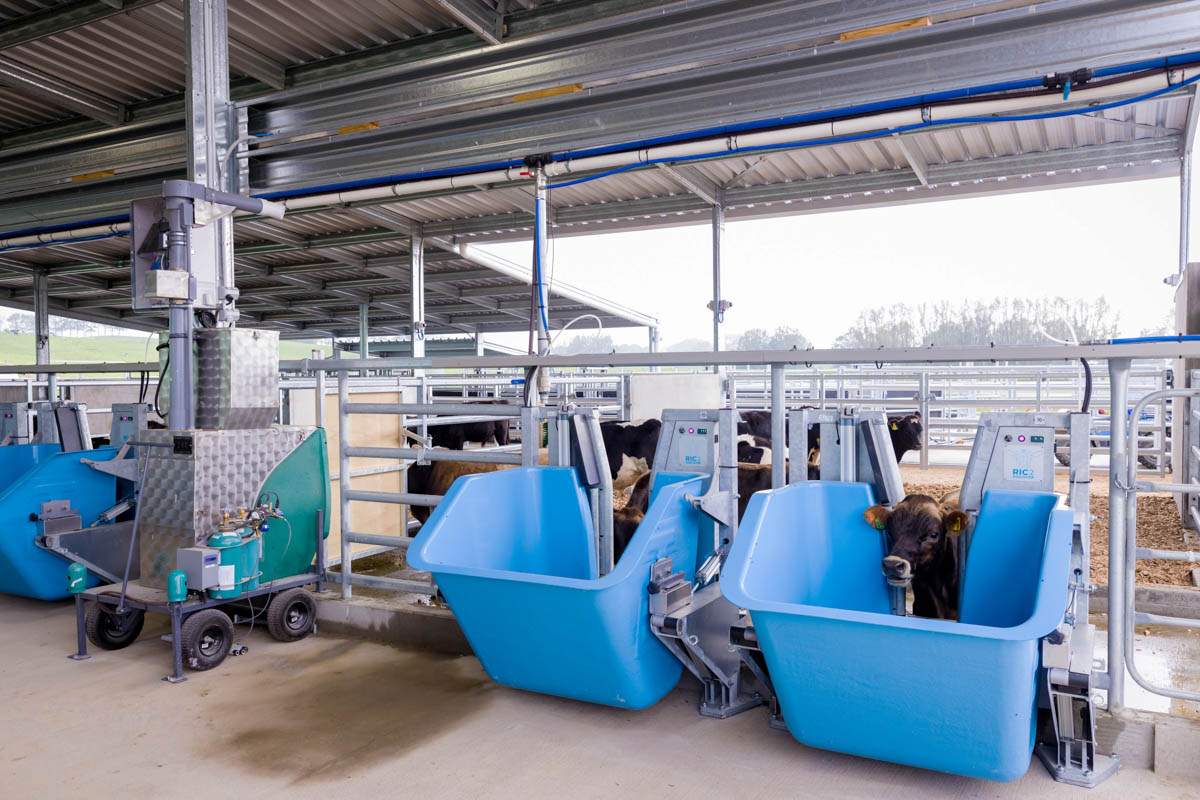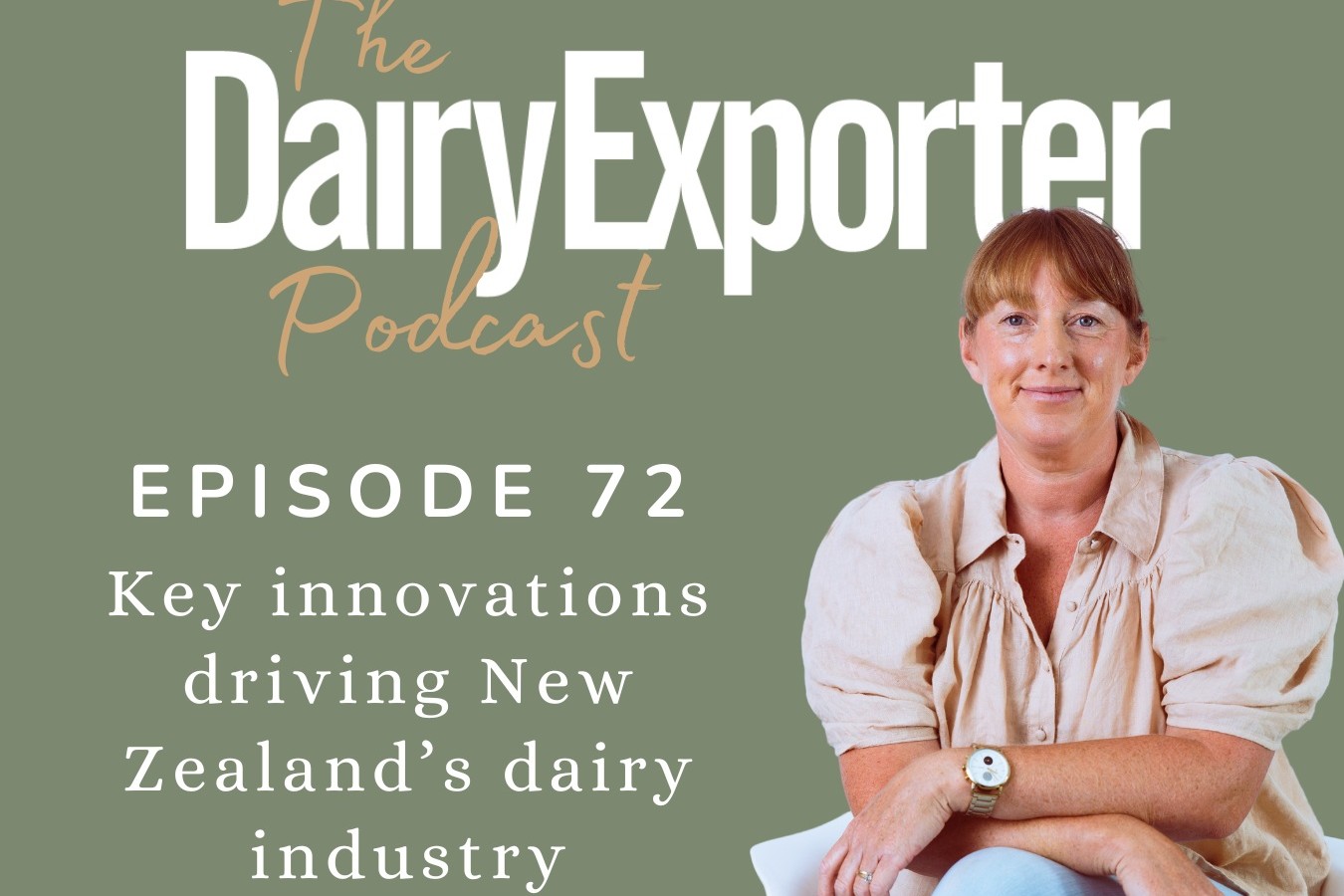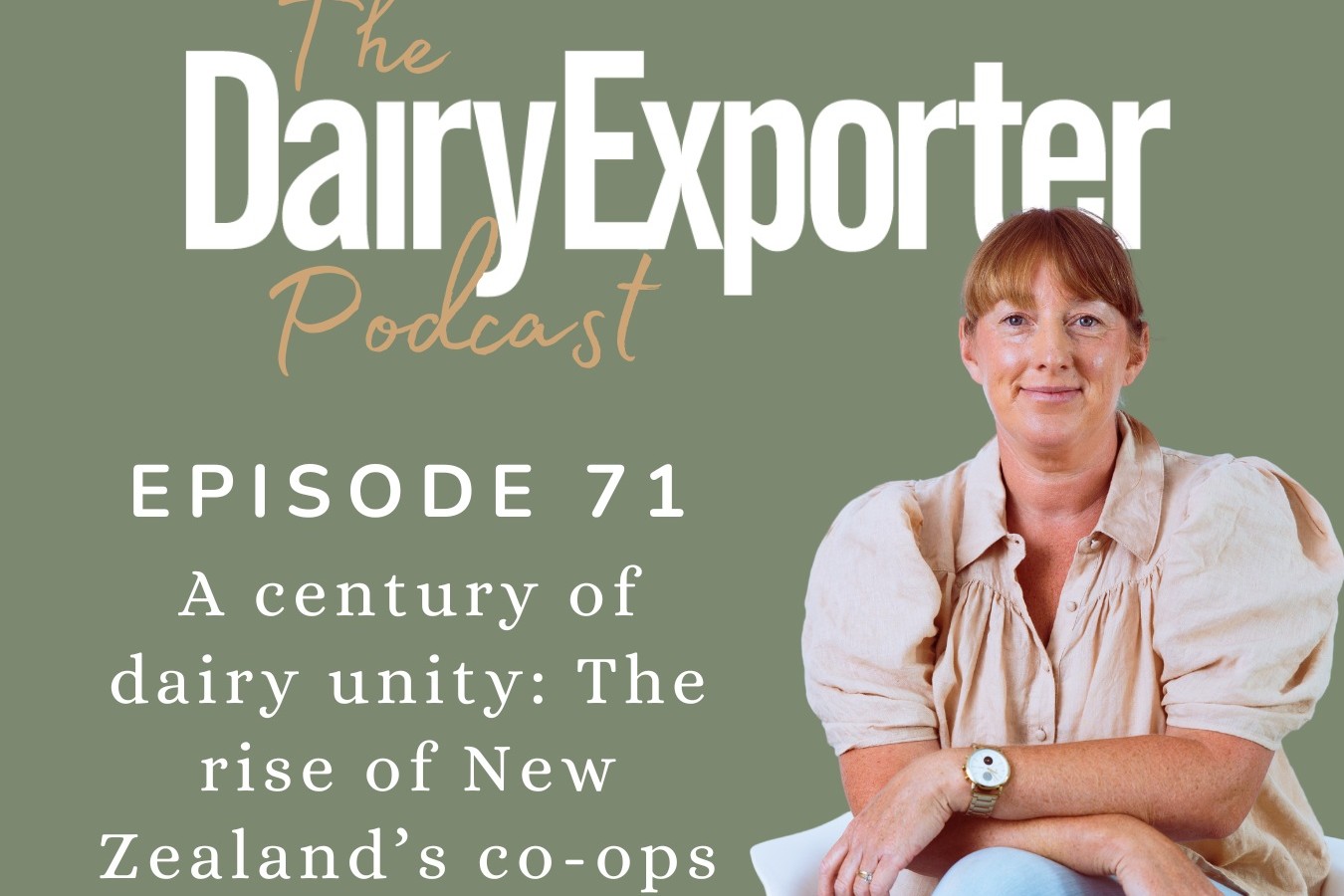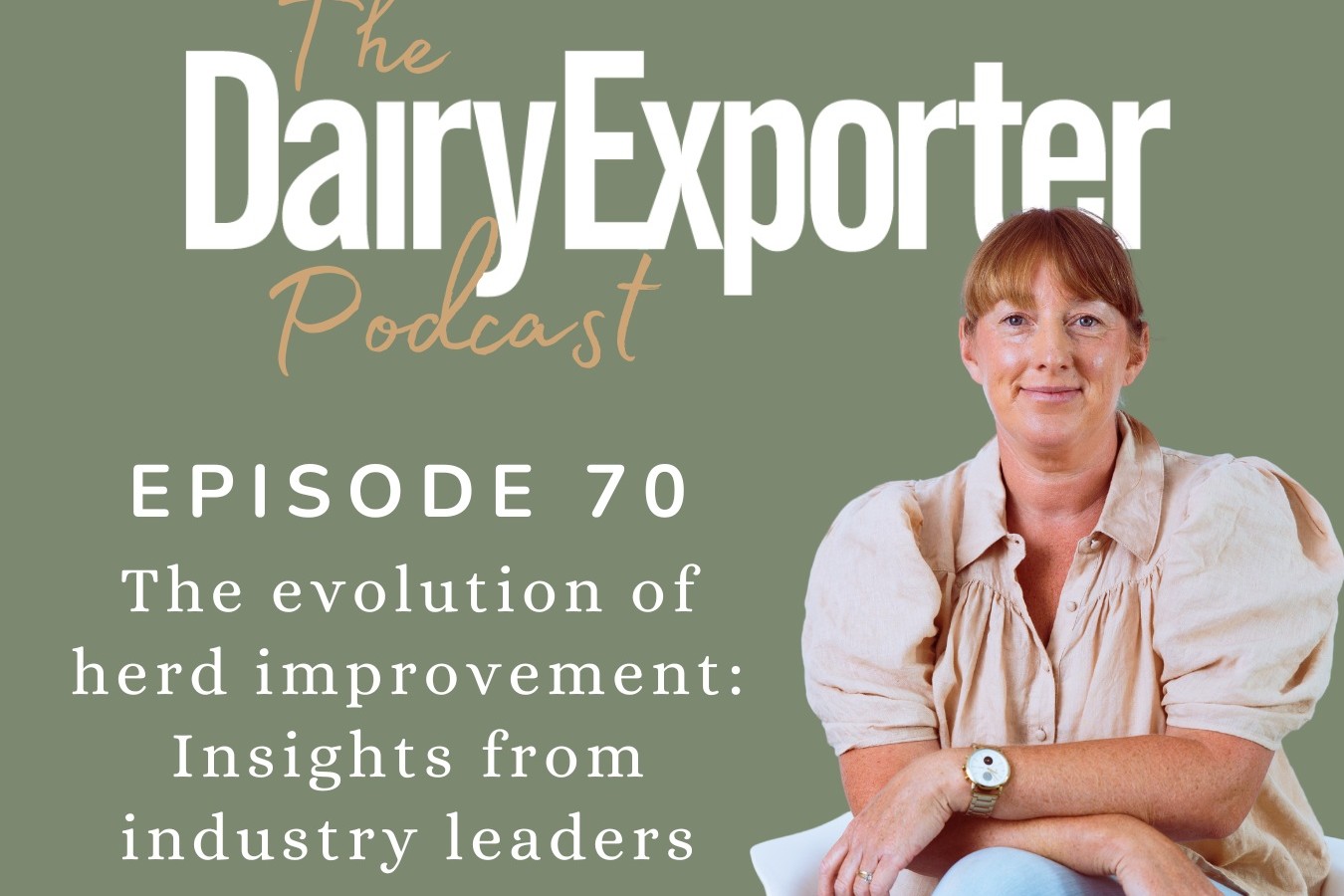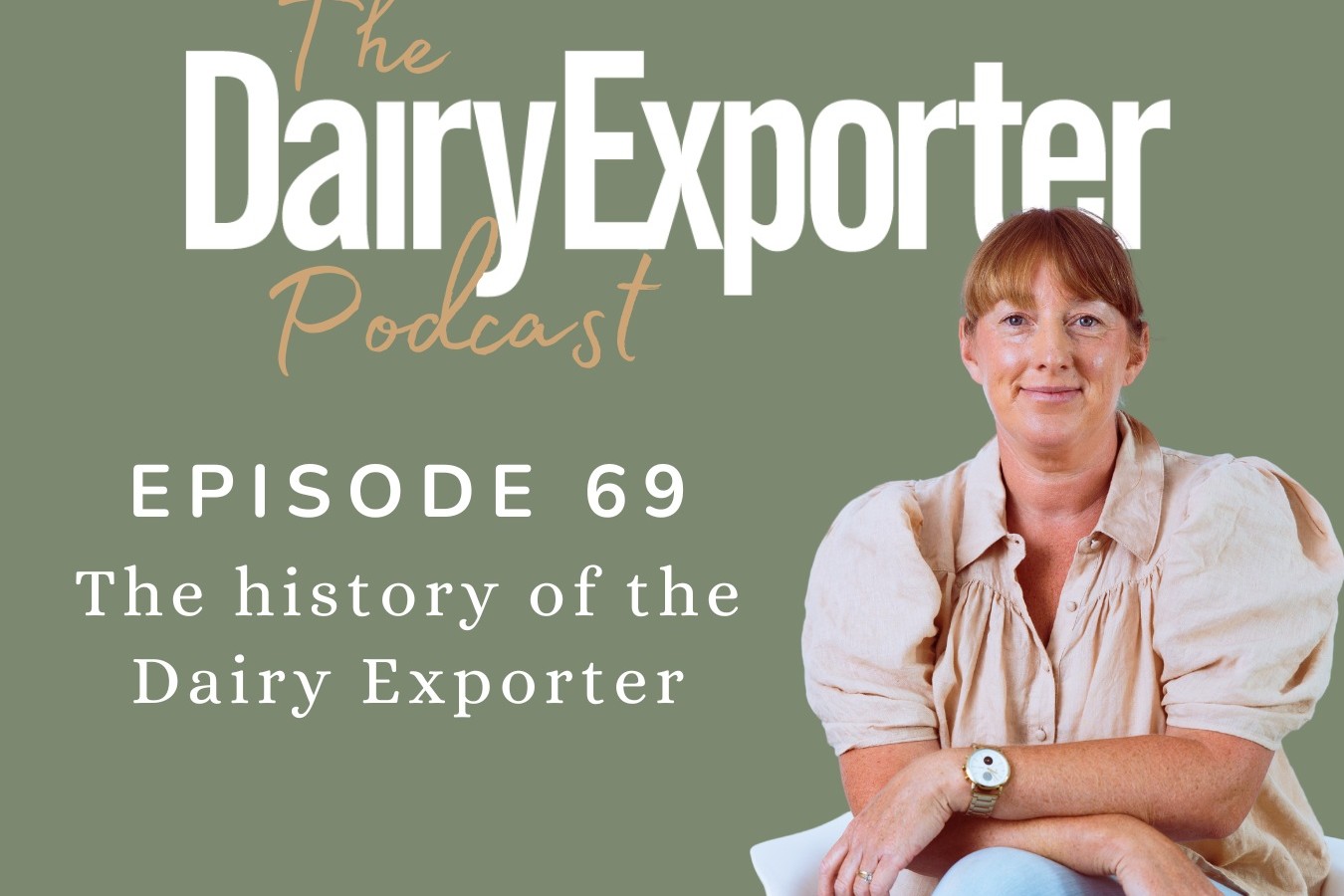Episode 21: Breeding for lower methane
Having a methane breeding value would see a 5-15% reduction in methane output from the New Zealand national dairy herd by 2050.
But one Waikato dairy farmer shares how he has already been on this journey to build a more efficient herd, lowering his greenhouse gas profile for a decade.
Guests include:
1. David Chin, Chief Executive, LIC
2. James Smallwood, Managing Director, CRV
3. Suzanne Rowe, Principal Scientist, AgResearch
Hosts:
1. Sheryl Haitana, Editor, Dairy Exporter
2. Anne Lee, Deputy Editor, Dairy Exporter
3. Delwyn Dickey, Journalist, Dairy Exporter
Waikato dairy farmer George Moss shares his journey to build a more efficient herd for a decade. A herd which has lowered his farm’s greenhouse gases and improved his profitability. The herd has moved from the 50% percentile to the top 3% nationally and he has more efficient cows milking on a shorter lactation.
He is passionate about lowering the environmental footprint and has found some good results through focussing on breeding more efficient cows.
LIC and CRV have collaborated on a methane research programme which has found a variation in bulls that have a lower methane emission.
Both David Chin, chief executive of LIC and James Smallwood, chief executive of CRV Ambreed discuss the methane research programme and the steps that need to be taken to deliver a methane breeding value to New Zealand dairy farmers by 2026.
They chat about how a methane trait has to be part of the other key selection criteria for farmers and how the research has to be robust for NZ to stand behind the claims that our cows are lower methane emitters.
The pair also talk about the importance of collaboration between industry competitors in NZ and globally to try and tackle some of the bigger challenges the industry faces.
AgResearch senior scientist Suzanne Rowe tells journalist Delwyn Dickey about the progress NZ is making in methane research and how they are working with the Government to recognise the ranking of lower methane animals.
She also discusses the prospect of testing methane from milk samples, with promising results from their research with sheep with good predictors, and how that can cross over to dairy cows.
Read more about methane breeding here:
Is Breeding the Answer?
Finding a marker or proxy in a dairy cow that correlates with low or high methane is the big prize.
Words Delwyn Dickey


